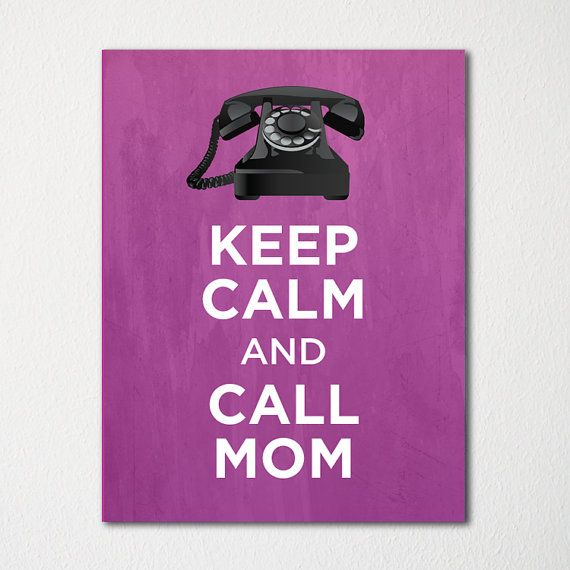Call your mom or have a beer! How important is it to prepare for an upcoming presentation? [Speak on the Shoulders of Giants]

How many times do you rehearse for an upcoming public presentation?
Once?
Twice?
Thrice?
Or…
Are you the come-what-may type of presenter so you don’t rehearse for your presentation at all?
Public presentations are no joke.
If you want to deliver great presentations that leave lasting, positive results, you have to understand the importance of rehearsing and having your materials ready days before your actual presentation.
According to Professor Joel Litman, CEO and President of Valens Research, presenters often spend a lot of time on the minute details of their presentation.
Oftentimes, even just a day before the actual presentation, presenters would still double check their script, outline, or their PowerPoint presentation to see if everything is written as accurately as possible.
What if a part of your presentation includes discussing important statistics?
Would it be better to say 1.8 versus 4.7 instead of simply saying 2 versus 5?
Would your audience even care if you state the estimated numbers rather than the precise ones?
There is no doubt that your presentation has to be absolutely factually correct. However, if these details (such as the example above) would only cause more confusion for your audience instead of clarity, it’s better to just simplify the information.
Professor Litman believes “It is better [for a presentation] to be roughly right than precisely wrong.”
The 72-hour Rule
McKinsey & Company, a US-based management consulting firm, is one example of a company that applies this rule when preparing for a presentation.
Under this rule, all the presentation deliverables should be ready and printed out 72 hours before the day of the actual presentation. No one is allowed to edit the materials after that.
If your presentation day is on a Thursday, then everything should be ready as early as Monday.
Why is this rule necessary?
It’s because the 72 hours left before the actual presentation should be for rehearsing, not for changing presentation slides or editing the script.
How you present is as important as what you present. Aside from the content, your audience will also remember the way you conduct your presentation.
Your facial expressions.
Your posture.
Your tone of voice.
Your gestures.
These things contribute to the success of your whole presentation.
That’s why in rehearsing, you’re not just practicing what you say, but how you say it. Otherwise there’s no point in rehearsing at all.
Here are three good reasons why you should rehearse your presentation:
-
It builds your confidence.
Rehearsing helps you build a solid familiarity with your presentation.
The more familiar you are with your topic, the more confident you’ll be to present it on stage.
Don’t just rehearse in your mind. Do it out loud in your room or in any quiet place.
Think of it as if you’re already in front of your audience and about to deliver your actual presentation.
That way, you’re not only practicing the flow of your presentation but also your posture, movement, voice tone, pauses, emotions, and more.
-
It gives you a chance to improve the flow of your presentation.
If you’re going to deliver a presentation in a time-sensitive event, rehearsing your piece beforehand is necessary.
Finishing your presentation ahead of time during your rehearsal means you can speak a little more slowly in your next practice.
On the other hand, if you’ve finished beyond the time allotted for your presentation, you’ll be aware that some parts of your presentation would have to be omitted, especially ones that don’t add a lot of insights to your topic.
Rehearsing will also help you see if your presentation contains jargons, acronyms, or abbreviations your audience might not be familiar with.
If those words are necessary for your presentation, you will need to allot time to properly explain the terms to them so they will be able to keep up with your discussion.
-
It lets you try something new.
When you rehearse your presentation, you have a chance to try new techniques to deliver your message.
If your presentation time allows it, maybe you can conduct an ice breaker that is related to your topic.
In another instance and as long as it’s appropriate, you may want to practice for a multimedia show (with lighting effects and more) so you could have better engagement with your audience.
Don’t close your doors to trying something new in your presentation.
Use your rehearsals to experiment on new strategies to capture your audience’s attention, learn new things, and let go of methods that no longer serve your purpose as a speaker.
Talk to your mom.
In one of your rehearsals (preferably NOT your last rehearsal before your actual presentation), call your mom (or any other loved one) and rehearse your presentation in front of her or over a phone call.

Try to not tell her at first that you’re rehearsing for an actual presentation.
Talk to her in a casual manner―just like how you converse with her on an everyday basis.
If in the first 30 seconds of your “secret” rehearsal, she asks, “Why are you speaking like that?” or “Why are you acting like that?” then take note of improving your delivery. This is an indication that your tone sounds too scripted.
On the other hand, if your mom understands what you’ve said and keeps the conversation going without noticing you’re actually rehearsing for a presentation, then that means you’re able to get your message across with the proper tone and delivery―casual, conversational, and engaging.
You can then tell her that you’re preparing for a presentation. In most instances, your mom would be one of the people that would give the most honest comments and feedback.
Some beer might help.
Sometimes, it would also help to call a friend or colleague to join you for some drinks.
With a similar approach as being on a call with your mom, practice delivering your presentation to your friend over a bottle of beer. This creates a more relaxed atmosphere.

Take note of how your conversations go.
If your friend thinks that you’re talking in an unusual manner, then you know that your tone isn’t as conversational and casual. If he or she doesn’t notice that you’re actually practicing your talking points and sees it as an actual conversation over a beer, then you have an idea of how your tone should be.
Just remember not to drink too much beer in the process!
So…PRACTICE. PRACTICE. PRACTICE.
It doesn’t matter if you’re a novice or a veteran speaker.
You won’t always get your presentation perfect the first time you rehearse it.
Don’t underestimate the importance of rehearsing your presentation. It’s not just about the “what” of your presentation… it’s also about the “how” of the presentation that would leave a positive impact on your audience.
Apply the 72-hour rule along with these other tips in your next presentation. See how it can help you improve your public speaking skills!
About The Dynamic Marketing Communiqué’s
“Wednesday: Speak on the Shoulders of Giants”
In a meeting with one person
…a boardroom with five people
…or a huge venue with hundreds of people
—whatever the situation or setting, it’s very important to learn and eventually master the art of public speaking.
No matter what, you always need to effectively get your message across.
What good is a presentation with awesome content if you don’t deliver it properly?
Every Wednesday, we publish different tips, insights, and secrets on how you can improve your presentation skills to captivate your audience and lead interesting discussions.
The need for great presentation skills applies EVERYWHERE.
(Small meetings with your team, big meetings with your boss, an important marketing pitch, speaking engagements for events with a big audience, etc.)
Learning these skills is not just for the corporate world. Being in other industries such as the Arts, Information Technology, Medicine, and Education while knowing how to present well will definitely give you an edge.
Have that advantage.
Hope you’ve found this week’s public speaking tip interesting and helpful.
Stay tuned for next Wednesday’s Speak on the Shoulders of Giants!
Cheers,
Kyle Yu
Head of Marketing
Valens Dynamic Marketing Capabilities
Powered by Valens Research
www.valens-research.com




